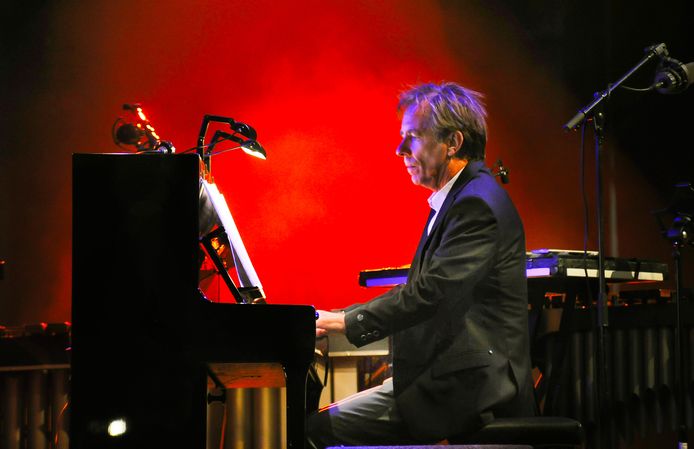
Interview with pianist Douwe Eisenga. An interview by email in writing.
JazzBluesNews.com: – First, let’s start out with where you grew up, and what got you interested in music. How exactly did your adventure take off? When did you realize that this was a passion you could make a living out of?
Douwe Eisenga: – I was born and raised in Apeldoorn, a small town in the Netherlands. Perhaps my dream of being composer started when listening to Tubular Bells from Mike Oldfield, all those years back in 1973. Although I did have organ and theory lessons for a few years, I really had no idea how to realize this dream, so I started to study sociology at the age of seventeen.
OUR US/EU Jazz and Blues Festivals 2023
After a few years I decided that music was too important and became full-time musician, playing in bands, buying synths and stuff, and writing music for theatre, dance, and film productions.
JBN: – How has your sound evolved over time? What have you been doing to find and develop your own sound? What routine practices or exercises have you developed to maintain and improve your current musical proficiency, in terms of both rhythm and harmony?
DE: – Again after a few years I realized I needed a proper education and needed to study composition. So I did, rather late, in the six years following my twenty-seventh birthday. After finishing this study, it took me quite a while to discover my own musical path. My pop-music mind was heavily brainwashed with all kind of avant-garde techniques and, to be honest, I wasn’t sure what or how to compose anymore.
At last I found out that this mixture of pop and modern techniques wasn’t my problem but my strength. I love the groove and tonality of rock and pop, and I love playing with musical structures, series, rhythmical games, etc.
There could be talk or advertising about your CD
JBN: – In your opinion, what’s the balance in music between intellect and soul?
DE: – Difficult question. Quite cerebral process of trial and error with attention to each individual note. And every now and then music arises quite spontaneously, is well put together from the first moment. That music is usually quite convincing, but whether it is ‘the soul’ that is responsible for that…..?
JBN: – There’s a two-way relationship between audience and artist; are you okay with delivering people the emotion they long for?
DE: – Can I listen to it endlessly myself? If not, the sketches will remain on the shelf. By that criterion, I am simultaneously both my own biggest fan and my own biggest critic. It’s great when there is an audience that also appreciates the music, but it’s not something that concerns me beforehand.
JBN: – If you could change one single thing in the musical world and that would become reality, what would that be?
OUR US/EU Jazz and Blues Association 2023
DE: – I try to tell myself that I have to be happy with how things are going and how the music industry works. There are things like wars and climate change that demand a lot more attention than my minor problems in the music world.
JBN: – Whom do you find yourself listening to these days?
DE: – At the moment I am quite addicted to the solo albums of Lunatic Soul, a pseudonym of Mariusz Duda, the front man of the Polish band Riverside.
Interview by Simon Sarg
Note: https://jazzblues.eu/2023/03/19/useu-jazz-blues-association-festivals/ You can express your consent and join our association, which will give you the opportunity to perform at our Jazz and Blues festivals, naturally receiving an appropriate royalty. We cover all expenses. The objectives of the interview are: How to introduce yourself, your activities, thoughts and intellect, and make new discoveries for our US/EU Jazz & Blues Association, which organizes festivals, concerts and meetings in Boston and various European countries, why not for you too!! You can read more about the association here. https://jazzblues.eu/2022/11/19/useujba/









